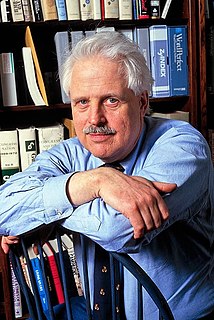A Quote by Christopher Lasch
The effect of the mass media is not to elicit belief but to maintain the apparatus of addiction.
Related Quotes
The Second Wave Society is industrial and based on mass production, mass distribution, mass consumption, mass education, mass media, mass recreation, mass entertainment, and weapons of mass destruction. You combine those things with standardization, centralization, concentration, and synchronization, and you wind up with a style of organization we call bureaucracy.
Advertising and the free society are closely connected. Advertising helps to make a free society remain so by increasing competition, and by helping to maintain the freedom of the mass media themselves. The free society is one where advertising and advertising agencies are likely to be in considerable demand, though it is true that even in a totally centralist society there would still be a need for organisations and people to have access to mass communication media.
The media want to maintain their intimate relation to state power. They want to get leaks, they want to get invited to the press conferences. They want to rub shoulders with the Secretary of State, all that kind of business. To do that, you've got to play the game, and playing the game means telling their lies, serving as their disinformation apparatus.
Thinking about free speech brought me to media regulation, as Americans access so much of their political and cultural speech through mass media. That led me to work on the FCC's media ownership rules beginning in 2005 to fight media consolidation, working with those at Georgetown's IPR, Media Access Project, Free Press, and others.
The opposite of addiction is human connection. And I think that has massive implications for the war on drugs. The treatment of drug addicts almost everywhere in the world is much closer to Tent City than it is to anything in Portugal. Our laws are built around the belief that drug addicts need to be punished to stop them. But if pain and trauma and isolation cause addiction, then inflicting more pain and trauma and isolation is not going to solve that addiction. It's actually going to deepen it.
The drivenness in any addiction is about the ruptured self, the belief that one is flawed as a person. The content of the addiction, whether it is alcoholism or work, is an attempt at an intimate relationship. The workaholic with her work or the alcoholic with his booze are having a love affair. Each alters mood to avoid the feeling of loneliness and hurt in the underbelly of shame.








































